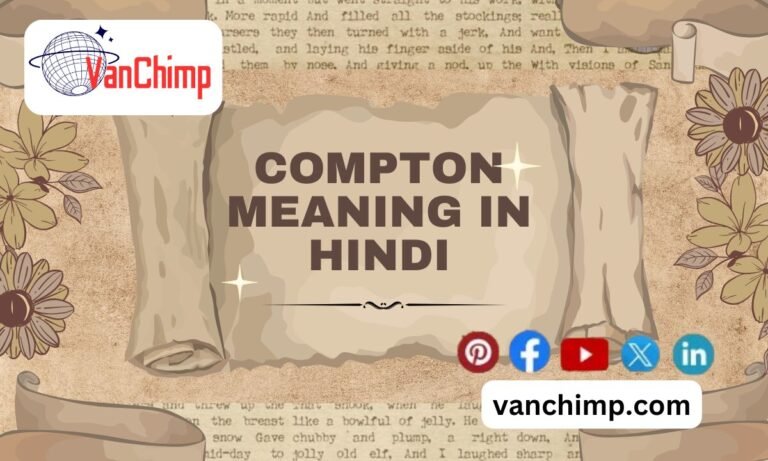What Does Occupation of Father Meaning in Hindi? Simple Explanation!
In Hindi, when we say “occupation of father,” we’re talking about what your dad does for work. It’s a big deal in Indian families, shaping how people see themselves and their futures. Let’s explore why this phrase matters so much and what it means in everyday life.
The occupation of father meaning in Hindi refers to “पिता का व्यवसाय.” For example, “मेरे पिताजी का व्यवसाय शिक्षक है.” It’s essential to consider your father’s profession when choosing a career path. Explore various types of jobs and career options in Hindi to find the right fit. Your father’s occupation can influence your career decisions significantly.
1. What Does the Occupation of Father Meaning in Hindi?
The phrase “occupation of father” translates to “पिता का व्यवसाय” (Pita ka Vyavasay) in Hindi. It refers to the profession or job that a person’s father is engaged in to earn a livelihood. In Hindi-speaking societies, the occupation of one’s father often carries social and cultural connotations that can influence various aspects of an individual’s life.
Significance in Indian Society: In Indian society, the occupation of one’s father has historically played a crucial role in shaping perceptions, aspirations, and opportunities for individuals. It is often seen as a reflection of family status, socio-economic background, and even caste identity in some contexts.
Family Pride and Identity
The occupation of father is not merely a source of livelihood but also a matter of family pride and identity. In many households, professions are passed down from one generation to another, creating a legacy that is deeply ingrained in familial narratives. For instance, a family of doctors may take immense pride in their medical lineage, while a lineage of educators may emphasize the importance of knowledge and learning.
Influence on Career Choices
The occupation of one’s father can significantly influence career choices and aspirations. Children often look up to their fathers as role models and may choose to follow in their footsteps. This phenomenon is particularly evident in traditional professions such as farming, craftsmanship, and business, where skills and knowledge are passed down through generations.
Father’s occupation, or “पिता का व्यवसाय” in Marathi, holds significance. In Hindi, Punjabi, and Urdu, it’s “पिता का व्यवसाय का मतलब.” Explaining jobs to kids (hindi) and being a role model is crucial. Work-life balance for fathers (hindi) and navigating challenges in the job market (hindi) are common themes.
Social Perceptions and Expectations
In Hindi-speaking societies, the occupation of father can also shape social perceptions and expectations. Certain professions may be accorded higher status and prestige, leading to societal pressures on individuals to pursue careers deemed respectable by traditional standards. Conversely, occupations perceived as less prestigious may face stigma or discrimination, creating challenges for individuals seeking to break away from traditional norms.
Economic Stability and Security
The occupation of father is intricately linked to economic stability and security within families. A steady income from a reliable profession provides the foundation for meeting basic needs, supporting education, and ensuring a decent standard of living for the household. Economic factors often drive decisions regarding education, career paths, and future prospects for individuals and their families.
2. Challenges and Opportunities
While the occupation of one’s father can open doors to privilege and opportunities, it can also pose challenges, particularly for those aspiring to chart their own path. Breaking away from familial expectations and societal norms requires courage and resilience, yet it can pave the way for personal fulfillment and growth.
Navigating Family Dynamics

The dynamics surrounding the occupation of father are often intertwined with broader family dynamics and relationships. Conflicts may arise when individuals choose unconventional career paths or when economic pressures dictate choices that deviate from personal aspirations. Navigating these tensions requires open communication, empathy, and mutual respect.
Embracing Diversity
As society evolves, it’s crucial to embrace the diversity of occupations and career choices. Every profession plays a vital role in shaping the fabric of society, whether it’s the farmer tilling the land, the artist painting a masterpiece, or the entrepreneur launching a groundbreaking startup. By celebrating diversity, we honor the contributions of individuals from all walks of life.
FAQs
What Does the Occupation of Father Meaning in Hindi?
“Occupation of father” in Hindi refers to the job or profession that your father does to earn money for the family. It’s like asking, “What does your dad do for work?”
Why is the Occupation of the Father Important in Indian Families?
The occupation of father is important because it tells us about the family’s background and how they make a living. It’s also a matter of pride and identity for many families, as they often pass down their professions from one generation to another.
How Does the Occupation of Father Influence Career Choices?
Children often look up to their fathers as role models and may want to follow in their footsteps. If your dad is a farmer, you might want to be a farmer too. It’s about learning from your family and doing what you know.
Do Certain jobs have more respect in Indian society than others?
Yes, in Indian society, some jobs are seen as more prestigious or respectable than others. For example, being a doctor or an engineer is often highly regarded, while some other jobs may not be seen as fancy.
Why is the Occupation of Father Important for Economic Stability?
The occupation of father is important for economic stability because it helps provide a steady income for the family. This income is used to pay for things like food, education, and clothes, ensuring that everyone has what they need to live a good life.
Summing Up
The “occupation of father” is more than just a phrase in Hindi. It’s a window into the heart of Indian families and society. It tells us about where we come from, who we are, and where we’re going. As we look to the future, let’s remember the lessons of the past and the importance of family, tradition, and the ever-changing landscape of work and opportunity.




